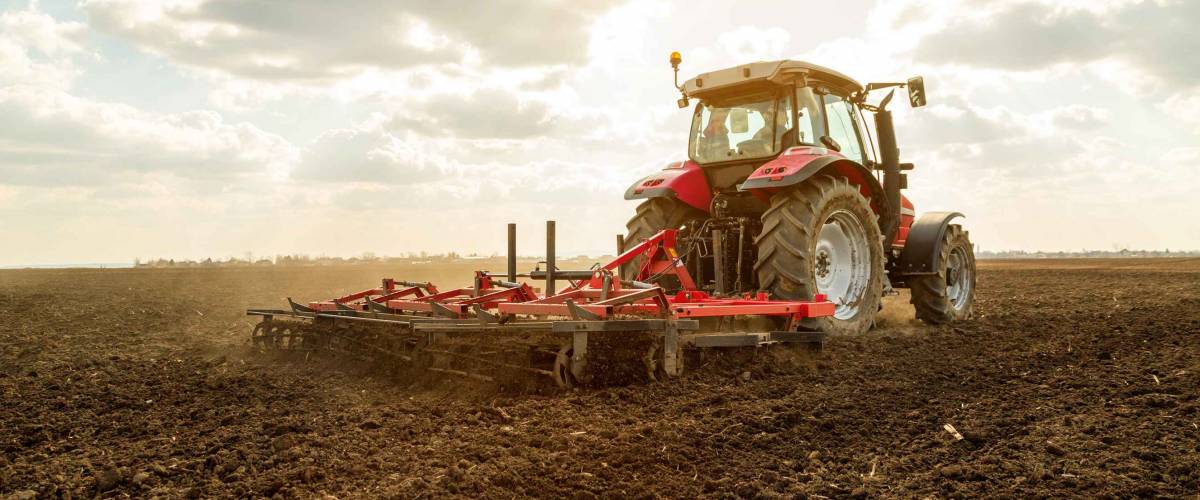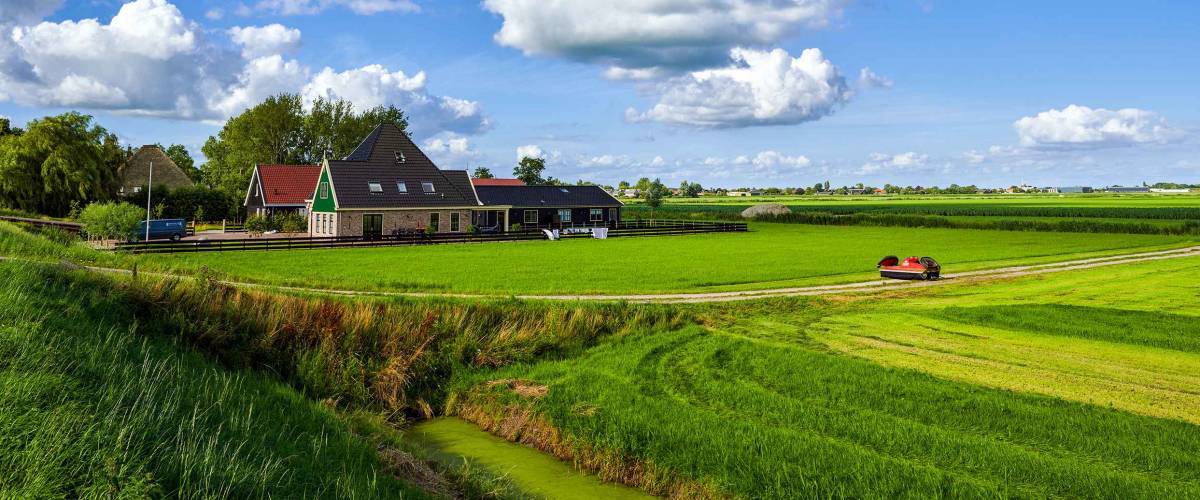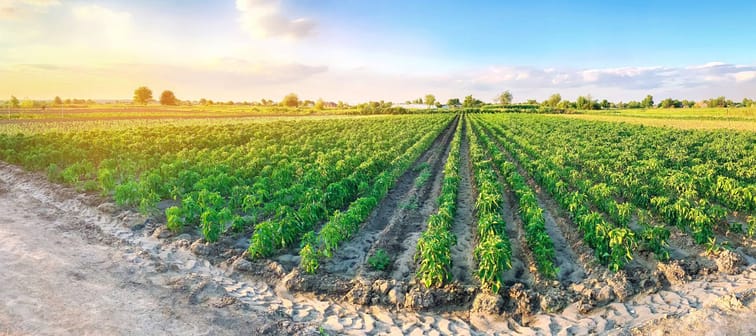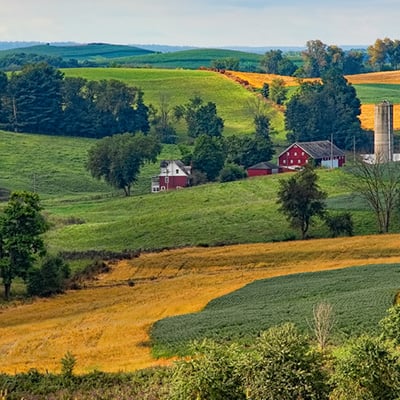Historical performance
The twenty-first century has been particularly profitable for commercial landlords. Over the past two decades, commercial real estate has been generating average annual returns of 9.5%, according to the National Council of Real Estate Investment Fiduciaries.
During that same period, the annual returns generated by farmland have averaged more than 11%. Among real estate, stocks, bonds, and gold, farmland is the only asset to average double-digit returns over the past three decades.
More recently, the National Agricultural Statistical Survey found that the value of farmland has risen more than 7% in 2021 alone.
“This all comes down to the fact that the value of farmland is underpinned by its vital role in our economy and our global food supply,” says Artem Milinchuk, founder and CEO of FarmTogether, an online platform that is enabling investors to purchase shares in U.S. farms for the first time.
“People will always need to eat.”
Stabilize your portfolio by investing in farmland
Farmland is one of the top asset classes capable of insulating your money from volatile market conditions. Learn how you can use FarmTogether to safeguard your portfolio.
Diversify nowThe diversification equation

Both commercial real estate and farmland make for excellent portfolio diversifiers. In addition to being uncorrelated with ups and downs of the stock and bond markets, they’re both largely insulated from any sudden tumult in residential real estate, too.
Adding both commercial properties and farmland to your portfolio can be a powerful diversification play.
When the economy’s sputtering and commercial tenants are finding it hard to cover their costs, landlords are hard-pressed to increase rents or sell their properties for full market value. Holding farmland, whose products remain in demand no matter what shape the economy’s in, can take the pressure off your commercial investments and keep the returns rolling in.
Because investing in farmland through FarmTogether costs a fraction of what you’d spend on even a modest, one-story office building, there can be room for both residential and agricultural real estate in many accredited investors' portfolios. You can diversify even further by investing in different kinds of farms.
“We encourage our investors to diversify across various crops and geographies,” Milinchuk says, adding that FarmTogether investors can invest in both high-risk/high-return and low-risk/low-margin crops, much like they would when picking stocks.
The inflation-busting appeal of real assets
In a world of meme stocks and blockchain, owning real assets can have a certain grounding effect for investors. But they have a lot more to offer than just being familiar and easy to understand.
Real assets, like commercial real estate and farmland, can be an ideal investment vehicle at times of high inflation, as their value doesn’t erode. Rents don’t fall because of inflation; food prices definitely don’t decline.
Because its products become no less necessary when prices increase, farmland has established itself as a particularly solid hedge against inflation. The TIAA Center for Farmland Research found that farmland returns have outperformed the consumer price index, the standard used for measuring inflation, by an average of 7.7% over the past 50 years.
Stabilize your portfolio by investing in farmland
Farmland is one of the top asset classes capable of insulating your money from volatile market conditions. Learn how you can use FarmTogether to safeguard your portfolio.
Diversify nowTruly passive income

One of the most appealing aspects of commercial real estate is the passive income it generates. You find a property, come to a mutually beneficial agreement with a rock-solid tenant and let the rent roll in until it’s time to renegotiate the lease—or sell, and capitalize on the appreciation.
Investing in farmland through FarmTogether is similar, only it provides investors a unique triple-shot of revenue: Rental payments from farmers leasing the land, profits from crop sales and capital appreciation.
The revenues kicked off by farmland should only continue increasing over time. The global population is not exactly shrinking, but the amount of arable farmland in the U.S. is. To meet global food demand, Milinchuk says farmers will need to increase their yields by 70% by 2050.
“This increasing demand for food, coupled with a decreasing supply of land, will make farms worth more in the future,” he says.
FarmTogether sources its properties, arranges long-term agreements with successful farm operators and facilitates the properties’ eventual sale. All of the arduous, intimidating and expensive steps that made farmland investing inaccessible to the average American for so long have been removed from the process. It’s as pure a passive investment as you’re likely to find.
Invest with purpose
Providing a space for businesses to do their thing allows commercial real estate investors an opportunity to help their fellow entrepreneurs. That might not be enough for people who want their investments to have a multi-faceted social impact.
FarmTogether can help scratch that itch.
“Farmland provides investors with an ESG component that traditional real estate does not,” Milinchuk says, referring to the movement that has investors putting their capital behind companies that let environmental, societal and governance factors guide their decision-making.
“Upgrades to farmland, such as conserving water and emphasizing carbon-smart farming methods, have the potential to mitigate the impacts of climate change,” he says.
Good for the planet and great for portfolios, farmland deserves a long, careful look the next time you’re weighing your real estate options. FarmTogether’s already taken care of the hard work; all you need to do is sign up, find the deals that match your investing goals and watch your money grow.
Diversify your investments with farmland
You don’t have to own a farm to profit off farmland.
Farmland has proven to be one of the most stable assets of the past few decades — and with FarmTogether, you’re able to invest today. FarmTogether's platform gives accredited investors access to this exciting market, and one of the highest-yielding asset classes on a risk-return basis.
Sign up for FarmTogether to start investing in farmland.







